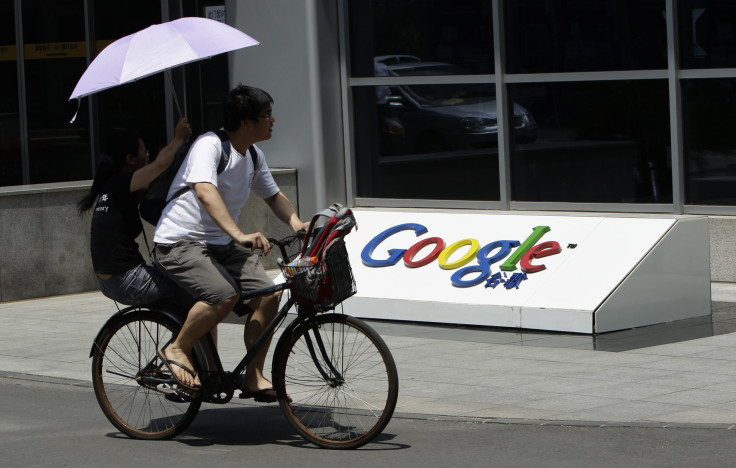Google Inc. Gets Caught Up In China’s Internet Crackdown
Beijing’s Internet censorship ‘overrides’ Web’s use in ‘commerce or scientific research.’

China's continuing block on the majority of Google Inc.’s Internet traffic, which started in May, is taking a heavy toll on key sectors, according to a report Sunday by the New York Times. The country’s censorship efforts, known as the “Great Firewall of China,” affect virtually all of Google’s services, and have slowed some down to the point where they are unusable.
The crackdown involved a recent cyberattack by authorities on research universities, according to a report from GreatFire.org, an Internet watchdog that keeps track of China’s censorship efforts; and executives at startups say the crackdown has impeded their progress as well, with employees spending time figuring out how to send files instead of doing real work.
“Internet security is being raised to a much higher degree,” Xiao Qiang, a specialist in Chinese censorship from the University of California, Berkeley, told the New York Times. “It overrides the other priorities, including commerce or scientific research.”
Experts say that Beijing is amping up its Great Firewall due to increased concerns about domestic terrorism following a series of deadly attacks, as well as a recent rise in “nationalism, directed primarily at Japan” as well as the U.S., the report says. The crackdown has affected Internet users within academia as well as business, with one professor saying he wasn't able to file a recommendation letter for a student applying at an American university because the site was blocked. The Great Firewall reportedly blocks Google's email service, Gmail, as well as its mobile app store, Google Play.
While some Chinese Web companies are cruising along fine -- the initial public offering Friday for Alibaba Group Holding Ltd. valued the company higher than Amazon and Facebook -- new startups are eschewing China’s Internet censorship and air pollution and opening nearby offices in countries, such as Singapore.
One chief technology officer for a Chinese startup, who requested anonymity to prevent retaliation from the government, told the New York Times that employees were having trouble collaborating on documents and other files due to the crackdown’s impact on the Google Drive cloud storage service. The company is now forced to host its own files locally, which he said was slowing employees down.
“We have our own closed server in the office and host things there,” he said. “That’s not going to the cloud; it’s like going back to the early 2000s.”
The cat-and-mouse game between Beijing and Google began when the company shut down its Chinese servers in 2010 over censorship concerns, pointing users to its servers in Hong Kong to avoid restrictions. China initially responded by sporadically blocking its Hong Kong servers, barring Web users from visiting the site for 90 seconds if they attempted a banned search term, but now has a blanket ban on all Google services.
Earlier this year, Google began employing encrypted search results following the NSA spying scandal, which made it more difficult for Chinese censors to track Web users. Beijing responded in May by blocking all access to Google’s family of sites, which experts at the time saw as a pre-emptive measure to hinder searches related to in advance of the 25th anniversary of the Tiananmen Square Massacre in June. Reuters reported in July that the ban was briefly lifted, but it has remained in effect shortly thereafter.
© Copyright IBTimes 2024. All rights reserved.





















